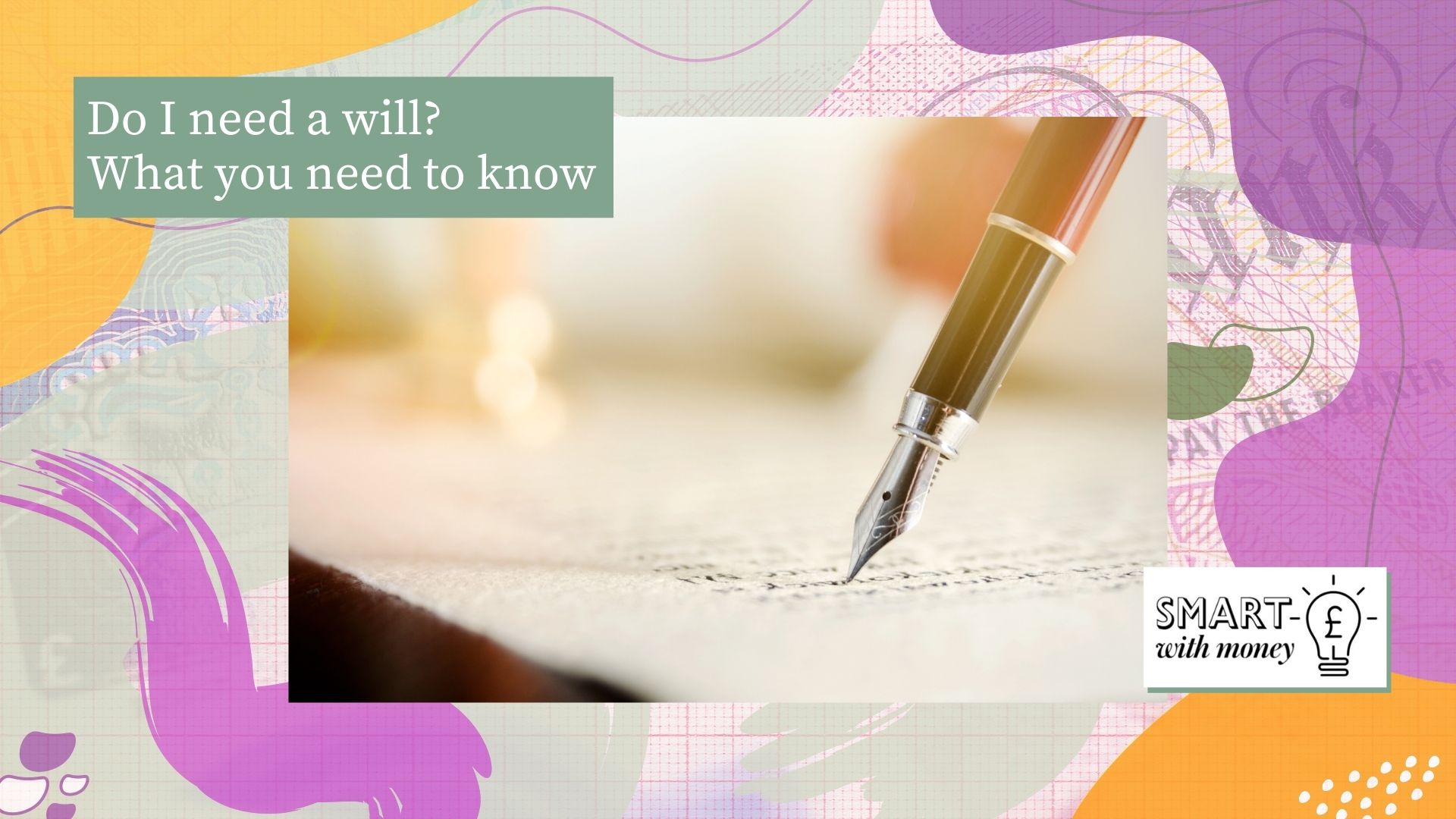Do I need a will? What you need to know about making a will and when to do it
Making a will is often one of those things that you think about but don’t get around to actually doing but when is the best time to make your will?

If you die without making a will, the law decides who gets any money, property, or possessions (known as your estate) that you may leave behind. You can also set out what happens to any dependents, such as children, or beloved pets in your will, and use it to save on inheritance tax.
But despite the obvious benefits, three in five adults in the UK have not written a will, according to research from Canada Life.
There are a number of reasons why you may not have a will—procrastination is a big one, but so too is the common misconception that they are really expensive.
Having a will at any stage of life can add extra security should the worst happen. Our expert financial journalist gives you all the information you need to make the right decision for you.
More from Smart With Money
- The Bank of Mum and Dad: how to help your children onto the property ladder
- How to talk to children about money
- How to start investing for your grandchildren
Why write a will?
There are several reasons why it’s a good idea to make a will.
Express your wishes
“First, a will can give certainty to those who are left behind that they are carrying out the wishes of the person who died,” says Sarah Pennells, consumer finance expert at pensions and insurance provider Royal London.
Sign up for the woman&home newsletter
Sign up to our free daily email for the latest royal and entertainment news, interesting opinion, expert advice on styling and beauty trends, and no-nonsense guides to the health and wellness questions you want answered.
Fair division of your estate
Without a will, your estate will be divided according to the strict laws of intestacy. This means that if you are separated but not divorced, for example, any money would automatically go to your ex rather than your current unmarried partner and any unadopted stepchildren. Friends and charities would also miss out.
“The intestacy rules are very clear on the line of inheritance if there is no will. Only certain people can make a claim against an estate if they feel they ought to have been included as a beneficiary of an estate,” says Martha Swann, associate at Wilsons Solicitors.
“Even if you want to leave money to those people who would inherit under intestacy rules, if you have a will, it means you can decide how much to leave them and whether to leave them any items you own that may have a special meaning for them,” says Pennells.
Decide who will look after your children and pets
If you have children or adult dependents, you can use your will to appoint guardians who will have legal responsibility for their care should both parents die. Research from Royal London found that two-fifths of people were unaware that the legal responsibility for any dependent children under 18 would fall to the courts without a will in place, and not the immediate family, until a decision is made on who will become guardians.
“You can also set out what should happen to any pets you own, although—contrary to popular belief—you can’t leave money to your pets in your will,” says Pennells.
Save on inheritance tax
A will can also help you to save on inheritance tax (IHT). If you’re married or in a civil partnership, there’s no IHT to pay on the estate you leave to your spouse or partner when you die. There may be a bill however if assets are left to other family members or friends, depending on the value of the estate you leave behind.
Who needs a will?
Smart With Money

Smart With Money is our dedicated money channel created to give you expert, easily digestible information to help you make the most out of your money.
Everyone's circumstances are different but if you have assets (such as property and money in a bank account), complicated financial or family affairs, children, or particularly strong views about giving to charity, for example, you should consider making a will.
“If someone in their early twenties is buying their first property then a will is just as valuable as it is for someone in their seventies who has amassed a lot of assets over a long period of time,” adds Swann.
While many people make wills after getting married or having children, it shouldn't just be major life events that trigger someone to make a will. “Humans have an optimism bias, which means that they think bad things mostly happen to other people, which isn't the case. Therefore, it's best to prepare for the worst and hope for the best.
“Creating a will as early as possible and regularly updating it (every five years is recommended, or when major life events happen) is a good approach to keep in mind,” she says.
Some married couples, or those in a civil partnership, think a will is unnecessary if they don’t have children and they’re happy for their assets to pass to their spouse or civil partner—as per the law of intestacy. But, while it’s not nice to think about, you need to consider what would happen should the worst happen and you were both to die. Without a will, who is the beneficiary may not be who you’d expect or would want to inherit.
Who doesn’t need a will?
While many people would benefit from having a will, there are circumstances in which you may not need one.
For example, if all your savings are in joint names, you don’t have other assets apart from your pension, and you own your home as joint tenants (or joint owners with a survivorship clause, in Scotland), then you may not need a will.
“That’s because money in joint accounts will automatically pass to the other person/people named on the account—whether or not there’s a will. The same applies to property that’s jointly owned, but only if it’s owned as joint tenants, not as tenants in common,” says Pennells.
“If you have a pension, that won’t be included in your will. Instead, you should fill in a ‘nomination of beneficiaries’ form, to set out who should inherit your pension when you die.”
How much does a will cost?
The mere mention of solicitors and pound signs appear, but the cost of a will doesn’t have to be prohibitively expensive.
If your affairs are simple, you could use a professional will writer. “They tend to be cheaper than solicitors, but aren’t regulated in the same way. If you go down this route, make sure you choose one that is either a member of The Society of Will Writers or the Institute of Professional Willwriters,” says Pennells.
Bequest, for example, charges £49 for a basic online will, while other popular choices include Farewill and Beyond which charge £90. These services often offer an annual subscription for around £10 a year, which allows you to make as many changes to your will as you like.
If your financial or family affairs are complicated, then it is worth using a solicitor. Simple wills start at £150.
Free wills month
You can even get a will written professionally for free. There are several schemes which run each year, such as Will Aid month, in November, Free Wills Month in March and October, and Will Relief in Scotland, where you may be able to get a will written in exchange for a suggested donation, or a request to leave something to the charities in your will (although there’s no obligation to do this).
Check too to see if your employer, or any trade union you’re a member of, offers any special deals on will writing.
Georgie is the contributing editor for The Money Edit and also covers finance for Woman & Home. Georgie is a multi-award-winning financial broadcaster and journalist and a trusted voice on all matters personal finance and consumer affairs, hosting a number of money podcasts and appearing regularly on TV, radio and in print.
-
 We never thought we'd see this 'dated' manicure make a chic comeback, but here it is - and we're on board
We never thought we'd see this 'dated' manicure make a chic comeback, but here it is - and we're on boardClean and angular, short square French tips are a go-to this season for a practical but stylish manicure...
By Naomi Jamieson Published
-
 Where was Black Snow season 2 filmed and is it based on a true story?
Where was Black Snow season 2 filmed and is it based on a true story?Black Snow season 2 has landed on BBC iPlayer and the picturesque scenery is a stark contrast against the drama's chilling events.
By Emma Shacklock Published
